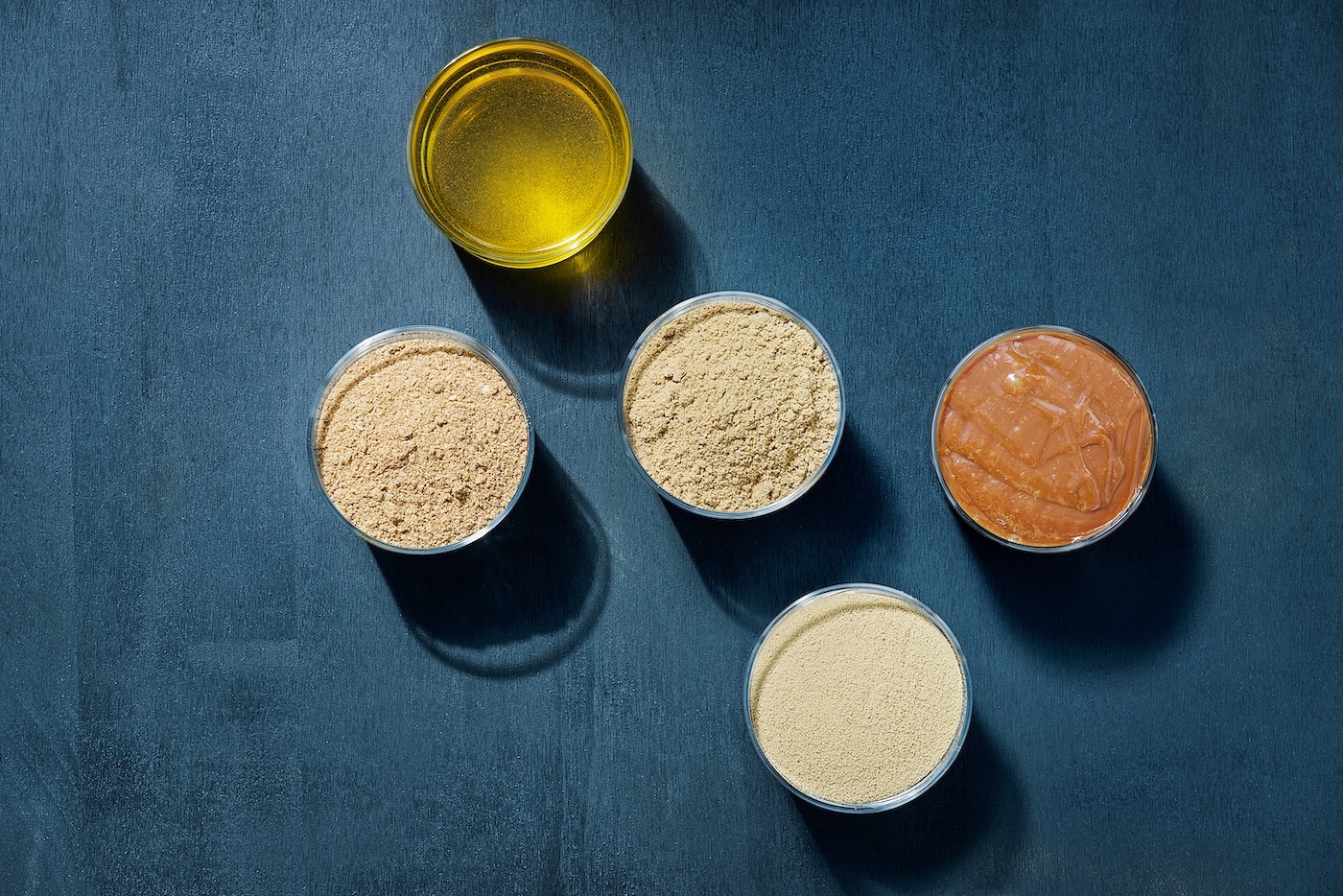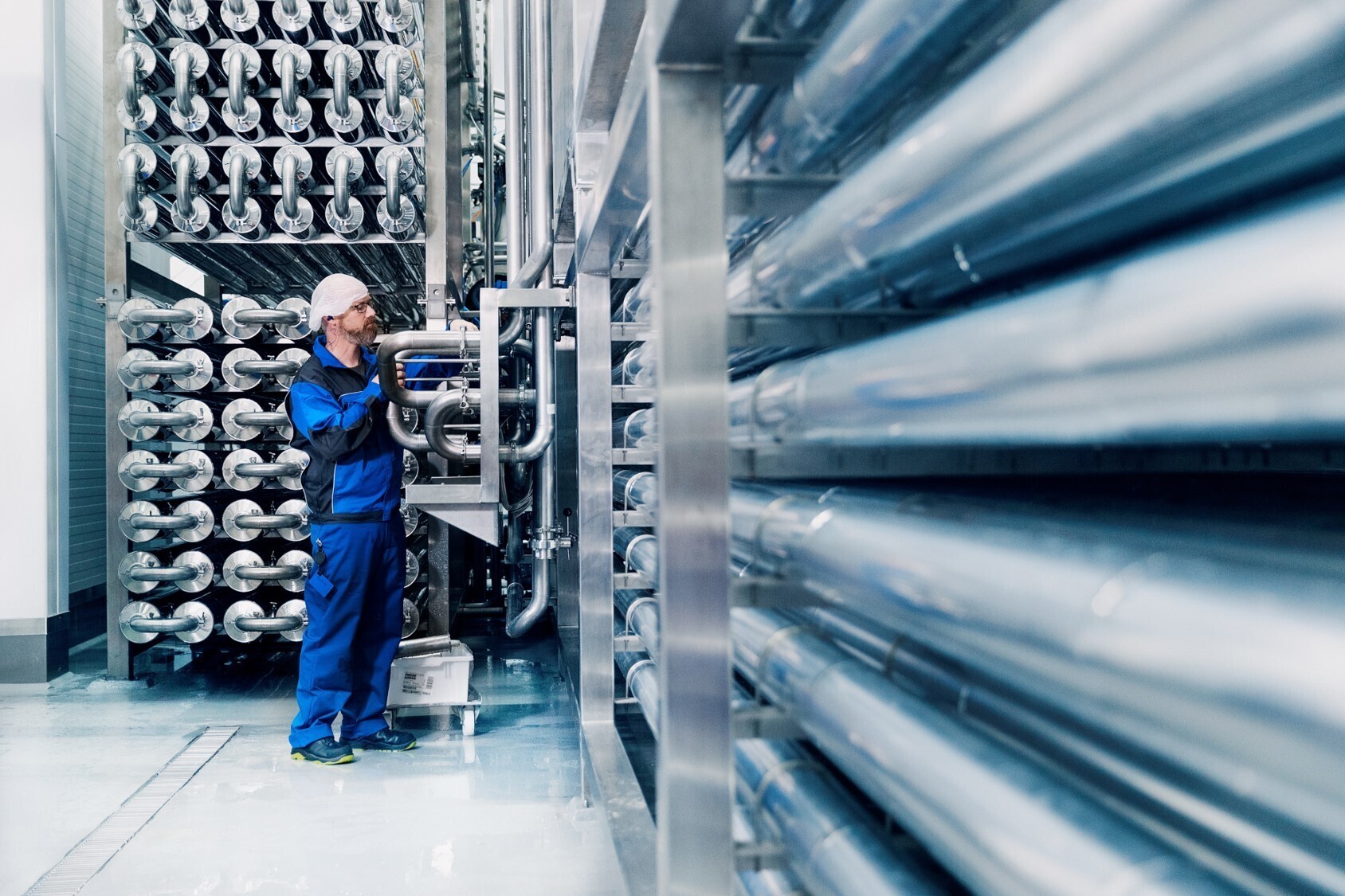Innovative use of rest raw materials from chicken and turkey
How can we best utilise high-quality proteins to benefit people? The recently concluded IPN project Hydroprot aimed to develop at least three new safe, high-quality chicken hydrolysate-based products. The project was funded by the Research Council of Norway.

Photo: Sune Eriksen
Article written by Charlotte Krog - Nortura. First published on Nortura's website (Norwegian).
Chicken dishes are popular on Norwegian dinner tables. After fillets, thighs and wings have been removed from the chicken and packaged for sale, we are left with the offcuts and what remains is bone with small bits of meat. In Norway, this amounts to around 25-30,000 tonnes each year. This is a food-grade fresh material that is refined into a high-quality protein through a process called enzymatic hydrolysis.
Together with Nofima, Nortura and Norilia have looked at the possibility of developing sustainable, tasty and healthy food products from the proteins extracted from these poultry raw materials.
The Hydroprot project, which kicked off at the start of 2017, looked at the possibilities of developing protein hydrolysate from offcuts and bone raw materials from poultry in order to develop new, innovative products. Protein hydrolysate has excellent nutritional, sensory and biological qualities and will be an important ingredient in innovative and targeted food products.
Young, elderly and fitness enthusiasts surveyed
Researchers at Nofima recently wrapped up a survey to map whether young people, the elderly and fitness enthusiasts would like protein-enriched food based on rest raw materials from chicken.
“This is a sensible way of exploiting the nutrients in the raw materials but we need to be certain that consumers are positive about using such protein enrichment,” says Nofima researcher Mari Øvrum Gaarder, who was responsible for the consumer studies.
Fitness enthusiasts and the elderly in particular would benefit from increased dietary protein intake with regard to the growth and maintenance of muscle mass during exercise and to prevent age-related loss of bone density and muscle mass. Certain elderly individuals also find that it may be necessary to take protein supplements to stay healthy as their appetite disappears.
Blood pressure-reducing effect
Laboratory experiments and tests show that some hydrolysates have the potential to reduce blood pressure. Peptides found in these hydrolysates can inhibit an enzyme called angiotensin-converting enzyme, or ACE inhibitors. The enzyme is important for the formation of a hormone called angiotensin II, which causes blood vessels to contract. When this enzyme is inhibited, angiotensin II is not formed and the result is that the blood vessels relax and dilate, which reduces blood pressure.
As people get older, physiological changes occur in the body, which can, among other things, lead to slower digestion. Researchers have found that the elderly take longer to digest proteins than younger adults. Nofima’s in vitro digestion model, which can simulate digestion in both adults and the elderly, found that protein hydrolysates are digested just as well in the elderly as in younger adults. This is probably related to the fact that hydrolyzed proteins are partly broken down by enzymes, allowing them to be digested more quickly than intact proteins.
Another finding involved the sensory properties of the products and how they changed colour, taste and texture when chicken hydrolysate was added.
The survey also found that fitness consumers are more sceptical of new ingredients and protein-enriched products than older and younger consumers.
As part of the project, the hydrolysate has been tested in various food applications. This has been done to discover the impact different mixture levels have on taste and technical properties. Based on consumer surveys and results from product testing, Nortura and Norilia have assessed and selected the most interesting directions and products.
Manufacturing of products enriched with chicken protein has been conducted on a pilot scale and some products have already launched in the US market.
Bioco and continuous enzymatic hydrolysis
Hydrolysate is extracted at Bioco, a biorefining company located in Hærland, next door to Nortura’s largest poultry slaughterhouse, which supplies raw materials directly to Bioco. The facility is owned as a joint venture by Nortura and Felleskjøpet Agri, who have conducted the project using research funding from the Research Council of Norway. Nortura’s subsidiary Norilia led the project and is currently responsible for the sale of the ingredients manufactured at Bioco.

*.twig: Sune Eriksen
Bioco has adopted the process of continuous enzymatic hydrolysis and has a unique approach in which hydrolysis takes place in pipes, rather than the traditional batch method where hydrolysis takes place in tanks. This is unique for the hydrolysis of poultry products. In this way, proteins, fats and minerals are extracted and refined as ingredients for further use in food and dietary supplements.
The facility is the first in the meat industry to adopt this innovative process technology of continuous enzymatic hydrolysis. The process is the result of several years of research and development, with funding from Innovation Norway.
“This is resource utilisation and sustainability in practice. We have adopted a unique technology that allows us to produce high-quality hydrolysed proteins and fats from chicken and turkey raw materials that were previously not used for food,” explains Eirik Pallin, CEO of Bioco.
Read more about the technology and the biochemical process here.
The company is the result of significant investments in the research into and development of a new process for more sustainable agriculture. There are both environmental benefits and value creation associated with using the entire animal.
There is demand for Norwegian raw materials due to their origin. Animals in Norway are among the healthiest in the world – Norway’s agricultural antibiotic use is the lowest in Europe and one of the lowest in the world. It is not allowed to use GMO or growth hormone in animal feed.
“Through refinement, we are able to extract nutrients that can be used to supplement or enrich food and pet feed. In this way, we can better utilise resources and ensure greater value creation,” says Heidi Alvestrand, Head of Business Development at Norilia.
Both the raw materials and the production are food-grade, which means that all of the ingredients can be used for human consumption. The most important markets for the quality proteins are sports nutrition or other health products. This is in addition to specialist products for pets.
International investment in the human market
Today, Bioco manufactures 1,150 tonnes of protein hydrolysate from 9,000 tonnes of raw materials each year. The capacity is greater and manufacturing can be scaled up in line with market developments. Different manufacturing protocols have been developed for the manufacturing of ingredients for human use and for pets. Taste is particularly important for the ability to supply hydrolysate to the human market and this has been a key focus of the Hydroprot project.
“We are now starting to feel very satisfied with the sensory quality of the hydrolysate. In order to ensure a high-quality product, a dedicated sensory panel has been established at Bioco and there is a strong focus on the quality and shelf-life of the products,” says Heidi Alvestrand.
Norilia and Bioco are now focusing on the international market while continuing research and development. A broth drink and crisps made from potatoes fried in Norwegian chicken oil have been developed, aimed at the US market.
Over time, the ambition is to use protein hydrolysate in products aimed at the Norwegian market.
The path ahead
Until now, the focus has been on the development of prototypes that can be used in various products. The path ahead leads to the commercialisation of the hydrolysate in products.
“Norilia will continue its international focus on the USA, particularly when it comes to ingredients. Together with our US partners, our aim is to develop a concept within Active Performance Nutrition. Here, the chicken hydrolysate will be the protein source, but both eggshell calcium and membrane will also be added. Eggshell calcium is a good source of calcium and research shows that eggshell membrane has immunomodulatory properties,” says Marianne Skov Markussen, Chief Advisor Nutrition at Norilia.
The ambition is to acquire further funding from the Research Council of Norway. There is a wish to further develop, among other things, the sensory and technological properties of the hydrolysate, testing the hydrolysate further in various applications and developing entirely new concepts aimed at selected groups.
Background/facts:
- Bioco is a biotechnology and biorefining company located in Hærland.
- The facility was officially opened by the Minister of Agriculture and Food, Olaug Bollestad, on Wednesday 23 June: Read about the official launch of Bioco.
- The facility is the first in the meat industry to adopt the innovative process technology of continuous enzymatic hydrolysis.
- The process is the result of several years of research and development, with funding from Innovation Norway. Read more about the technology and the biochemical process here.
- The company is the result of significant investments in the research into and development of a new process for more sustainable agriculture.
- The Nortura subsidiary Norilia is responsible for the research, product development, sales and market development of all Bioco products.
- The facility manufactures high-quality proteins, fats and minerals from offcuts from chicken and turkey production.
- The facility’s process line is the first and, so far, only process line in the meat industry for continuous enzymatic hydrolysis.
- Bioco utilises all of the resources in the raw materials and the only emissions from the products are water and steam.
- Nortura and Felleskjøpet have invested NOK 123 million in the Bioco facility and the company has also received around NOK 15 million in investment funding from Innovation Norway.









